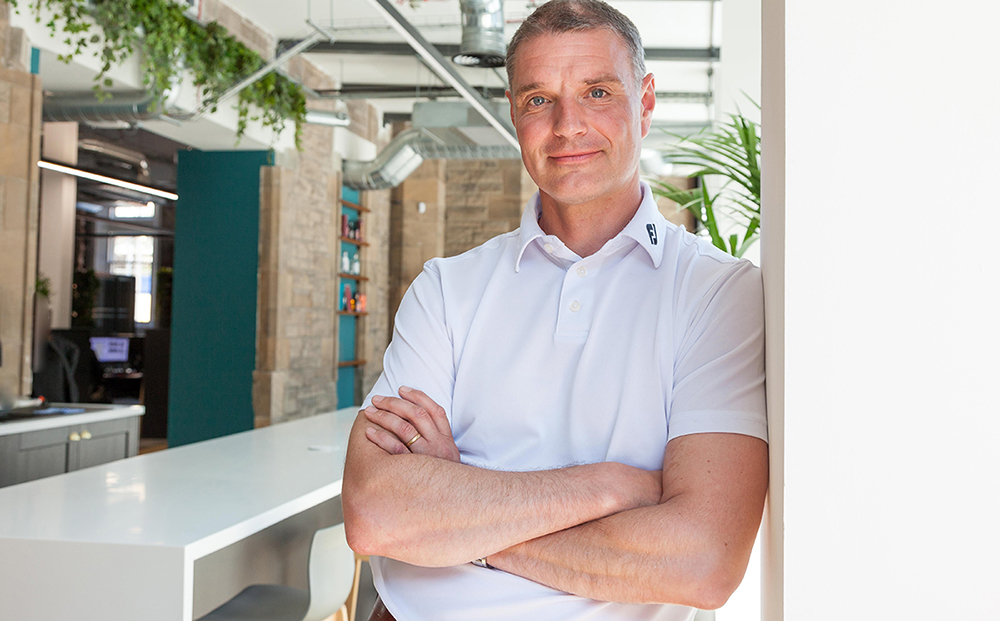
ALASTAIR Wallace, senior partner at Thomas & Adamson, has called for a ‘rapid response’ attitude to mental health issues in the construction industry.
As the sector marks Mental Health Awareness Week, Mr Wallace said he believes the industry needs to do more to support employees in need during difficult times.
With the high pressure and deadline-driven nature of major projects, he said the most effective way to offer support was to encourage a culture of ‘openness and vigilance’ in the workforce, to offer targeted help for any colleagues who may be struggling.
The comments follow a recent Glasgow Caledonian University report in conjunction with the Lighthouse Construction Industry Charity, which revealed suicide rates among construction workers had risen for the fifth consecutive year.
Alastair Wallace said, “That’s absolutely of concern, and of course anyone taking their own life is a tragedy of the greatest order. What we shouldn’t do is brush a report like this under the carpet and we do need to tackle issues like this. The pressures in the construction industry to deliver are constant and relentless, and that definitely takes its toll on people.
“We are quite fortunate that most of our staff work on multiple projects; if you are single project focused and if it is a difficult project, you can be stuck on that for two to three years and there’s no break. You can see people get themselves into a really dark place and can’t see the light at the end of the tunnel.”
Mr Wallace said the most important element when it comes to supporting employees was the human factor, revealing that staff at Thomas & Adamson champion systems of early intervention and rapid response for struggling colleagues.
The firm offers wellbeing days of leave and mental health support training, as well as a variety of flexible working options, but Mr Wallace believes the most important part of supporting staff is the idea of looking out for each other.
“Flexible working has had a massive impact, giving people that flexibility of where to work and when to work,” he explained. “But is that going to be the thing that stops people getting into a really dark place? It’s not the one thing, but it’s another important tool to help people.
“The best way to help is having a level of awareness among all our managers and our wider staff to spot if someone is having issues, and the open-ness for people to be able to raise issues or ask for help.
“We have sent a lot of people on mental health courses and education is key here too. We also make sure that mental health is on the agenda so people can talk about it and bring things to the table.
“It’s about being supporters as well as employers – we’re all in this together and we all need to help each other. It’s not just about writing things down in manuals or having posters on the wall; it’s about creating a positive culture where people know the door is open and we are all here for each other.”
The ’early intervention’ policy is said to have been crucial in helping colleagues who have suffered workplace stress or personal troubles.
Mr Wallace added, “Early intervention and rapid response is so important. We have stepped in to help staff with different issues, whether that’s in their personal lives or the pressures of work and in every case, we have put a plan in place and every single one has remained employed in the business.
Mr Wallace said the industry now is much more sensitive to mental health issues, and there is a wider atmosphere of collaboration and support.
He explained, “The day of the macho culture is all gone, and people are more honest and open. In this industry, we all know each other, and I’ve had instances where industry colleagues have phoned me up to tell me a member of staff wasn’t his normal self and ask if everything was ok.
“Ten years ago, you’d have told that person it was none of their business but now it’s welcomed and appreciated. We are all much more understanding nowadays.”
While the industry has made strides, Mr Wallace said more must be done, highlighting the sector-wide recruitment ‘crisis’.
“The industry has massive recruitment issues at the moment, white collar and blue collar, and we are trying to make it a more attractive environment to work in,” he added. “Otherwise we will have an ever decreasing circle of talent coming into the industry, and why would people want to enter the industry if we don’t help address these issues.
“As leaders in the industry, we’d definitely like to play a role in championing this issue and supporting mental health. It’s so important for the future of the industry and the wellbeing of the people within it. It’s a simple moral issue of treating people well and offering the right support when needed.”
As part of the company’s commitment to social responsibility and community support, Thomas & Adamson is a keen supporter of the Kinross-based charity SEAMAB, which helps care for children and young people with complex needs.
Mr Wallace added. “We are also donating our services to the charity SEAMAB, based near Kinross, which helps struggling young people and children. We are building them a new school and it’s important that if you can do one little thing to help, then you should do whatever you can.”








